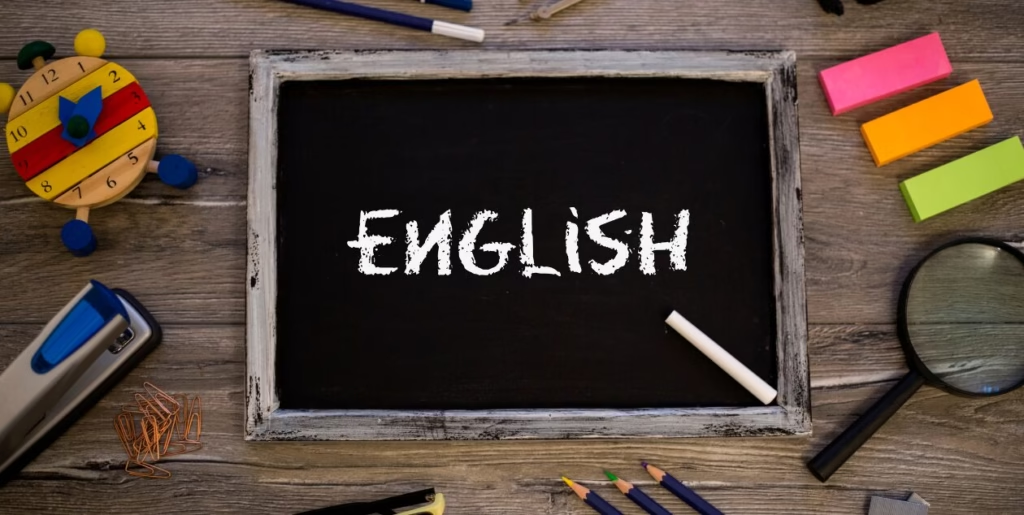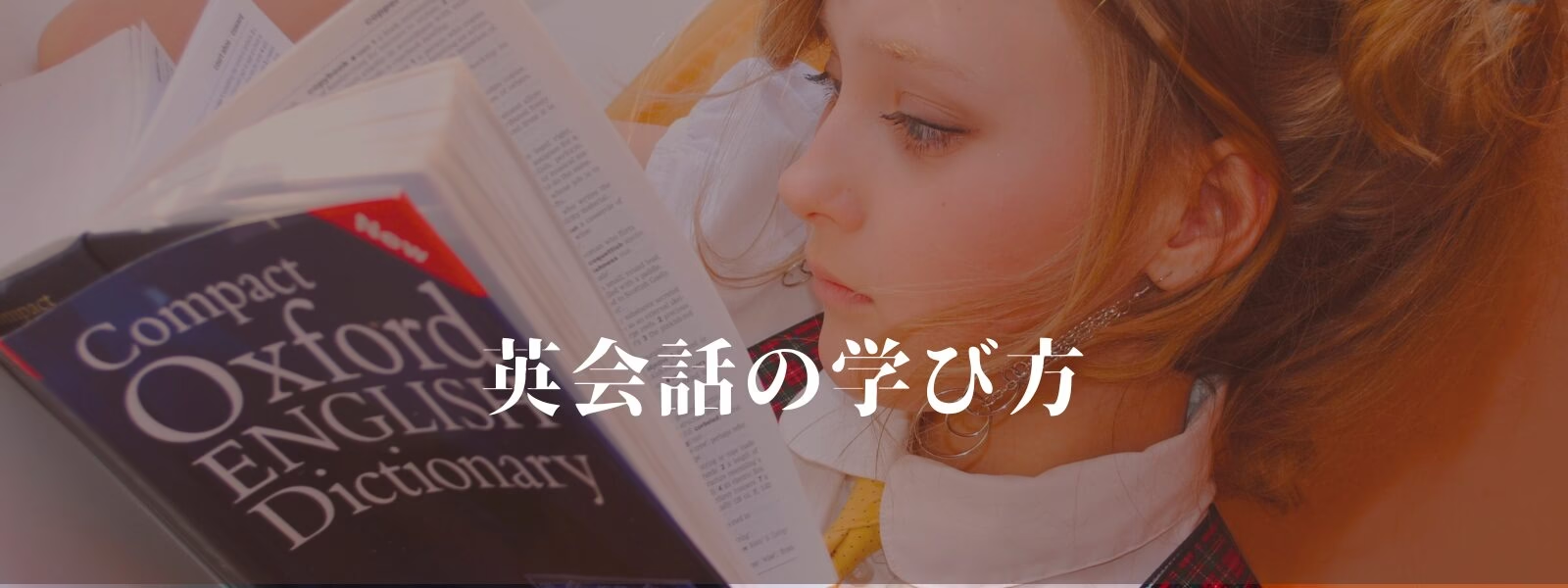Part 1で比較級・最上級の基礎を、Part 2で原級比較の応用を学んだあなたへ。比較表現の学習の大きなポイントとなるのが、この「特殊な比較表現」です。
「文法書には載っているけど、使い方がよく分からない…」
「no more than」や「The 比較級, the 比較級」といった特殊構文、あるいは「as busy as a bee」のような慣用句は、ネイティブスピーカーが日常会話やビジネスで頻繁に使う「生きた英語」そのものです。これらを使いこなせるかどうかで、あなたの英語表現は単なる文法的な正しさから、自然な表現力へと劇的に進化します。
この記事では、英語を流暢かつ豊かに表現するために必須の、慣用句、特殊な最上級・比較級構文、そして紛らわしい否定表現を徹底的に解説します。豊富な例文と実践的な学習アドバイスを通じて、これらの表現をあなたの使える語彙として定着させましょう。
このレッスンで比較表現を完全攻略し、ネイティブ級の表現力を手に入れましょう!
1. 同等比較級を使った慣用句(as ~ as Idioms)

慣用句の価値
as ~ as という基本構造を使いながら、独特のニュアンスや強調を生み出す慣用句があります。これらは言葉を鮮やかに、そして印象的にします。
1.1 as busy as a bee:「とても忙しい」
意味: 非常に忙しい、絶えず活動している
この表現は、ミツバチの絶え間ない動きになぞらえた比喩です。
使用例
I’m sorry I haven’t replied sooner. I’ve been as busy as a bee this week.
(返事が遅れてごめんなさい。今週はとても忙しかったんです)
She’s been as busy as a bee preparing for the conference.
(彼女はカンファレンスの準備でとても忙しい)
ビジネスでの活用
My colleague has been as busy as a bee with the new project.
(同僚が新しいプロジェクトでとても忙しい)
1.2 as clear as mud:「全く分かりにくい」
意味: 非常に分かりにくい、不明確である
名前は反対のように思えますが、これは皮肉な表現です。「泥のように明確」という矛盾がユーモアを生み出しています。
使用例
The instructions were as clear as mud.
(説明書は全然分かりやすくなかった)
His explanation was as clear as mud. Nobody understood what he meant.
(彼の説明は全く分かりにくかった。誰も彼が何を言ったのか理解できなかった)
ビジネスでの活用
The new policy guidelines are as clear as mud to everyone.
(新しいポリシーガイドラインは誰にも分かりにくい)
1.3 as fit as a fiddle:「とても健康で元気」
意味: 非常に健康的で、体の状態が良い
「フィドル(バイオリン)のように調子が良い」というニュアンスです。
使用例
After a week of rest, I feel as fit as a fiddle.
(一週間休んだので、とても元気です)
He’s 70 years old, but he’s still as fit as a fiddle.
(彼は70歳ですが、今でも非常に元気です)
1.4 as cool as a cucumber:「とても冷静で落ち着いている」
意味: 非常に冷静沈着である、動じない
キュウリの涼しさになぞらえた表現で、落ち着きを表現します。
使用例
Even during the crisis, she was as cool as a cucumber.
(危機の時でも、彼女はとても冷静でした)
The negotiator remained as cool as a cucumber throughout the difficult discussion.
(交渉人は難しい討論の間ずっと冷静でした)
ビジネスでの活用
Our team leader stayed as cool as a cucumber when the system crashed.
(システムがクラッシュした時、チームリーダーはとても冷静だった)
1.5 as blind as a bat:「とても目が悪い、全く見えない」
意味: 視力が非常に悪い、またはメタファーとして「気づかない」
コウモリが目に頼らないというステレオタイプから生まれた表現です。
使用例
Without my glasses, I’m as blind as a bat.
(メガネがないと、私は全く見えません)
He walked right past his friend; he was as blind as a bat.
(彼は友達のそばを通り過ぎた;彼は全く気づかなかった)
1.6 as sly as a fox:「とてもずる賢い」
意味: 非常に狡猾である、策略的である
キツネの知性になぞらえた表現です。
使用例
He’s as sly as a fox when it comes to negotiations.
(交渉になると、彼はとてもずる賢い)
She pulled a sly as a fox move in the business deal.
(彼女はビジネス取引でずる賢い手を使った)
1.7 as light as a feather:「とても軽い」
意味: 非常に軽い、または「心が軽い」
羽毛の軽さを活用した直感的な比喩です。
使用例
This laptop is as light as a feather.
(このノートパソコンは羽のように軽い)
After finishing the project, she felt as light as a feather.
(プロジェクトを終えた後、彼女は気分が軽くなった)
1.8 as happy as a clam:「とても幸せ」
意味: 非常に満足している、幸福である
「貝のように幸せ」というユーモアのある表現です。
使用例
She’s as happy as a clam with her new job.
(彼女は新しい仕事にとても満足しています)
He’s as happy as a clam in his new apartment.
(彼は新しいアパートにとても満足している)
1.9 as strong as an ox:「とても力持ち」
意味: 非常に力が強い、体力がある
牛の力をなぞらえた表現です。
使用例
My grandfather is 80, but he’s still as strong as an ox.
(祖父は80歳ですが、今でもとても力持ちです)
The linebacker is as strong as an ox.
(そのラインバッカーはとても力持ちだ)
1.10 as quick as lightning:「とても素早い」
意味: 非常に速い、瞬時の
稲妻の速さを活用した表現です。
使用例
The new intern learns as quick as lightning.
(新しいインターンはとても覚えが早い)
The cheetah is as quick as lightning.
(チーターは稲妻のように素早い)
同等比較級慣用句のまとめ表
すべての as ~ as 慣用句を参照用に表にまとめました。
| 慣用句 | 意味 | 例 |
|---|---|---|
| as busy as a bee | とても忙しい | busy this week |
| as clear as mud | 全く分かりにくい | confusing explanation |
| as fit as a fiddle | とても健康で元気 | healthy and energetic |
| as cool as a cucumber | とても冷静で落ち着いている | calm and composed |
| as blind as a bat | とても目が悪い | poor eyesight |
| as sly as a fox | とてもずる賢い | cunning and clever |
| as light as a feather | とても軽い | very light in weight |
| as happy as a clam | とても幸せ | very satisfied |
| as strong as an ox | とても力持ち | very strong |
| as quick as lightning | とても素早い | very fast |
2. 比較級を使った慣用句と特殊表現

2.1 比較級 and 比較級(ますます~)
基本の意味: だんだん、ますます~(継続的な変化を表現)
この表現は、同じ比較級を繰り返すことで、増加や変化の継続性を強調します。
基本構文:
比較級 and 比較級
使用例
It is getting colder and colder.
(だんだん寒くなってきている)
Your English is getting better and better.
(君の英語はますます上達しているね)
Table tennis is getting more and more popular.
(卓球がますます人気になっています)
The problem is becoming more and more serious.
(その問題はますますひどくなっている)
ビジネスでの活用
Our sales are getting better and better each quarter.
(四半期ごとに売上がますます良くなっている)
The market is becoming more and more competitive.
(市場はますます競争が激しくなっている)
2.2 The 比較級, the 比較級(~すればするほど、ますます…)
基本の意味: ~すればするほど、ますます…(因果関係を表現)
この表現は、一つの事柄の増加が他の事柄の増加を招くという因果関係を表します。2番目の節(the 比較級 S’+V’)では、動詞(V’)が文脈で明らかな場合、省略されることが多い
基本構文:
The 比較級+ S+V, the 比較級+ S’+V’
使用例
The higher we climb, the colder it gets.
(高い所へ登れば登るほど、ますます寒くなる)
The more you practice, the better you become.
(練習すればするほど、上手になる)
The more beautiful she gets, the more popular she becomes.
(きれいになればなるほど、彼女はますます人気者になる)
The more you study, the smarter you get.
(勉強すればするほど、より賢くなる)
ビジネスでの活用
The more we invest in technology, the more competitive we become.
(技術により多く投資すればするほど、より競争力を持つようになる)
The less we communicate, the more misunderstandings occur.
(コミュニケーションが少ないほど、誤解が多く起こる)
2.3 no more than(たった~、~しか)
基本の意味: たった~、~しかない(only と同じ意味)
この表現は、想定されていた量より少ない量を強調します。
基本構文:
no more than + 数・量
使用例
I have no more than 5,000 yen.
(私は5000円しか持っていない)
The project took no more than three weeks.
(そのプロジェクトは3週間しかかかりませんでした)
There were no more than 50 people at the event.
2.4 no less than(~も、~ほど)
基本の意味: ~も、~ほど(as much/many as と同じ意味)
この表現は、想定されていた量以上の量を強調します。注意:no more than と反対の意味です。
基本構文:
no less than + 数・量
使用例
I have no less than 5,000 yen.
(私は5000円も持っている)
The project took no less than three weeks.
(そのプロジェクトは3週間もかかりました)
There were no less than 500 people at the event.
(そのイベントには500人もいました)
no more than と no less than の比較
| 表現 | 意味 | ニュアンス | 例 |
|---|---|---|---|
| no more than | ~しかない | 少なさを強調 | only 5 people |
| no less than | ~も | 多さを強調 | as many as 500 people |
2.5 more or less(多少、ほとんど)
基本の意味: 多少、ほぼ(approximately と同じ意味)
この表現は、正確ではなく、ほぼまたはおおよそを示します。
使用例
They were more or less surprised at the news.
(彼らはそのニュースに多少驚いた)
The work is more or less finished.
(その仕事はほぼ終わっている)
The meeting will take more or less two hours.
(会議はほぼ2時間かかるでしょう)
2.6 sooner or later(遅かれ早かれ)
基本の意味: 遅かれ早かれ、やがて(eventually と同じ意味)
この表現は、時間がかかるかもしれないが、最終的には起こることを示します。
使用例
He will come back sooner or later.
(遅かれ早かれ、彼は戻ってくるだろう)
You will succeed sooner or later if you keep trying.
(頑張り続ければ、遅かれ早かれ成功するよ)
This problem will be solved sooner or later.
(遅かれ早かれ、この問題は解決されるだろう)
2.7 比較級 + than any other ~(他のどの~よりも)
基本の意味: 他のどの~よりも(最上級と同じ意味を表す)
この表現は、比較級を使いながら最上級と同じ意味を表現します。
基本構文:
比較級 + than any other + 単数名詞
使用例
Mt. Fuji is higher than any other mountain in Japan.
(富士山は日本の他のどの山よりも高い)
This restaurant is better than any other in the city.
(このレストランはこの街のどの他のレストランより良い)
She works harder than any other employee.
(彼女は他のどの従業員より頑張って働いている)
2.8 比較級 + than ever(これまでよりも~)
基本の意味: これまでよりも~(過去との比較を強調)
この表現は、過去から現在への変化を強調します。
使用例
She is busier than ever these days.
(彼女は最近これまで以上に忙しい)
The competition is more intense than ever.
(競争はこれまで以上に激しい)
He is more motivated than ever before.
(彼はこれまで以上にやる気がある)
2.9 all the 比較級 for(~のためにそれだけいっそう~)
基本の意味: ~のためにそれだけいっそう~(理由を伴う強調)
この表現は、特定の理由によって、比較の度合いがより強まることを示します。
使用例
I love her all the more for her honesty.
(彼女の誠実さのために、私は彼女をいっそう愛している)
I appreciate your help all the more for your kindness.
(あなたの親切さのために、あなたの助けをますますありがたく感じます)
2.10 know better than to do(~するほど愚かではない)
基本の意味: ~するほど愚かではない、~するはずがない
この表現は、特定の行動をするほど頭が悪くない、ということを表します。
使用例
He knows better than to trust her.
(彼は彼女を信用するほど愚かではない)
She knows better than to make that mistake again.
(彼女はそのミスをもう一度するほど愚かではない)
2.11 much/still/far/even/a lot + 比較級(比較級の強調)
基本の意味: ずっと、はるかに、さらに~(Part 1で学習した強調表現)
これらの副詞を比較級の前に置くことで、より強い比較を表現します。
使用例
This smartphone is much faster than the old one.
(このスマホは前のよりずっと速い)
The new system is far more efficient.
(新しいシステムは前のはるかに効率的です)
Her performance is even better than expected.
(彼女のパフォーマンスは予想さえ超えている)
比較級慣用句のまとめ表
| 表現 | 意味 | 例 |
|---|---|---|
| 比較級 and 比較級 | ますます~ | better and better |
| The 比較級, the 比較級 | ~すればするほど | The more you study, the better |
| no more than | ~しかない | no more than 50 people |
| no less than | ~も | no less than 500 people |
| more or less | 多少、ほぼ | more or less finished |
| sooner or later | 遅かれ早かれ | come sooner or later |
| 比較級 than any other | 他のどの~より | higher than any other |
| 比較級 than ever | これまでより | busier than ever |
| all the 比較級 for | ~のためにいっそう | all the more for |
| know better than to | ~するほど愚か | know better than to trust |
| much/far + 比較級 | ずっと~ | much faster |
3. 最上級を使った慣用句とフレーズ

3.1 the best of both worlds:「両方の良いところを持つ」
基本の意味: 2つの異なるもの両方の長所を得られる状況
この表現は、通常は相反するような2つのもので、その両方の利点を享受できる理想的な状況を表します。
使用例
Working from home gives me the best of both worlds: flexibility and productivity.
(在宅勤務は柔軟性と生産性、両方の良いところを与えてくれます)
Living near the beach but close to the city is the best of both worlds.
(ビーチの近くでありながら都市にも近いのは最高です)
ビジネスでの活用
Our hybrid work model offers the best of both worlds for employees.
(ハイブリッドワークモデルは従業員にとって両方の利点を提供します)
3.2 last but not least:「最後だが重要な」
基本の意味: リストの最後の項目だが、それは重要性が低いわけではないということを示す
プレゼンテーションやスピーチで最後の重要なポイントを紹介する際に使われます。
使用例
Last but not least, I’d like to thank our team for their hard work.
(最後になりましたが、チームの努力に感謝します)
And last but not least, we should consider the environmental impact.
(最後になりましたが、環境への影響も考慮すべきです)
ビジネスでの活用
Last but not least, customer satisfaction is our top priority.
(最後になりましたが、顧客満足度が最優先です)
3.3 the cream of the crop:「最優秀、最上のもの」
基本の意味: グループの中で最も優れた人や物
この表現は、品質や能力が最高レベルであることを強調します。
使用例
Our new hire is the cream of the crop in the industry.
(新しい採用者は業界で最優秀の人材です)
These students are the cream of the crop of their generation.
(これらの学生は彼らの世代で最優秀です)
ビジネスでの活用
We only hire the cream of the crop.
(当社は最優秀の人材だけを採用します)
3.4 the tip of the iceberg:「氷山の一角」
基本の意味: 全体の中のほんの一部、表面的に見える部分だけ
この表現は、見えている部分は問題の始まりに過ぎず、より大きな問題が隠れていることを示します。
使用例
The recent complaints are just the tip of the iceberg.
(最近のクレームは氷山の一角にすぎません)
This scandal is only the tip of the iceberg.
(このスキャンダルはほんの氷山の一角です)
ビジネスでの活用
These cost overruns are just the tip of the iceberg in our project management issues.
(これらのコスト超過は、プロジェクト管理の問題の氷山の一角です)
3.5 the worst-case scenario:「最悪の場合」
基本の意味: 最も悪い結果が起こる場合
リスク管理やプランニングで、最悪の状況に備えるときに使われます。
使用例
Let’s prepare for the worst-case scenario in our risk management plan.
(リスク管理計画では最悪の場合も想定しましょう)
Even in the worst-case scenario, we have a backup plan.
(最悪の場合でも、私たちはバックアップ計画があります)
3.6 the most important thing:「最も重要なこと」
基本の意味: すべての中で最も優先されるべき事柄
この表現は優先順位を明確にするときに使われます。
使用例
The most important thing is to keep our customers satisfied.
(最も大切なのはお客様の満足度を保つことです)
The most important thing is your health.
(最も大切なのはあなたの健康です)
3.7 the biggest challenge:「最大の課題」
基本の意味: 最も困難な、または最も重要な問題
組織や個人が直面する主な課題を表現するときに使われます。
使用例
Reducing costs is the biggest challenge for our company this year.
(コスト削減が今年の我が社の最大の課題です)
Climate change is the biggest challenge facing humanity.
(気候変動は人類が直面する最大の課題です)
3.8 make the most of / make the best of:「~を最大限に活用する」
基本の意味: 与えられた状況や機会を最大限に生かす
この表現は、限定的な資源や時間を有効活用することを示します。
使用例
Make the most of this opportunity.
(この機会を最大限に活用しなさい)
We need to make the best of our limited budget.
(限定的な予算を最大限に活用する必要があります)
3.9 for the most part:「大部分は、ほとんどの場合」
基本の意味: 一般的には、大体において
全体の評価や傾向を述べるときに使われます。
使用例
For the most part, the project was successful.
(大部分において、そのプロジェクトは成功しました)
The weather was good for the most part.
(ほとんどの場合、天気は良かった)
3.10 most of all:「とりわけ、何よりも」
基本の意味: 複数の事柄の中で最も重要に思っている
優先順位や感情的な重要性を表現するときに使われます。
使用例
Most of all, I appreciate your support.
(何よりも、あなたのサポートに感謝しています)
Most of all, I want you to be happy.
(何よりも、あなたが幸せであることを望んでいます)
3.11 at (the) least:「少なくとも」
基本の意味: 最小限でも、少なくとも
この表現は、最小の量または程度を示します。the の使用はオプションであり、at least がより一般的です。同様に at (the) best、at (the) most も the は省略されることが多い
使用例
There were at least 100 people at the event.
(そのイベントには少なくとも100人がいました)
You should exercise at least three times a week.
(少なくとも週3回は運動すべきです)
3.12 at (the) best:「せいぜい、よく見ても」
基本の意味: 最良の場合でも、それ以上は期待できない
この表現は、状況の限定的な良さを示します。
使用例
This is, at best, a temporary solution.
(これは、せいぜい一時的な解決策です)
His performance is mediocre at best.
(彼のパフォーマンスはせいぜい平凡です)
3.13 at (the) most:「多くても、せいぜい」
基本の意味: 最大でも、それ以上はない
この表現は、上限の量を示します。
使用例
You can stay here for three days at most.
(ここにいられるのは多くても3日間です)
The project will take two weeks at most.
(そのプロジェクトは多くても2週間かかります)
3.14 at least、at best、at most の比較
| 表現 | 意味 | ニュアンス | 例 |
|---|---|---|---|
| at least | 少なくとも | 最小限 | at least 100 people |
| at best | せいぜい | 最良の場合 | at best, mediocre |
| at most | 多くても | 最大限 | 3 days at most |
3.15 at last:「ついに、やっと」
基本の意味: 長く待った後に、ついに実現した
この表現は、長期間の待機や努力の後の達成を表します。
使用例
At last, we finished the project.
(ついに、私たちはプロジェクトを終えました)
At last, I can finally relax.
(ついに、やっと休めます)
3.16 do one’s best:「最善を尽くす」
基本の意味: できる限りの努力をする
この表現は、個人の最大限の能力や努力を示します。
使用例
I’ll do my best to help you.
(あなたを助けるために最善を尽くします)
We did our best despite the difficult circumstances.
(困難な状況にもかかわらず、私たちは最善を尽くしました)
3.17 at one’s best:「最も良い状態で、全盛で」
基本の意味: その人が最も能力を発揮している状態
この表現は、ピーク時のパフォーマンスを示します。
使用例
She is at her best when she is leading a team.
(彼女はチームを率いているときが一番輝いています)
He performs at his best under pressure.
(彼はプレッシャー下で最高のパフォーマンスを発揮します)
3.18 the last 名詞 to ~ / the least 形容詞:「最も~しそうにない」
基本の意味: ~する可能性が最も低い人/もの
この表現は、特定の行動や状態と最も関係の遠い人物を表します。the least の後に形容詞が続く場合、これは the least likely のように「最も~しそうにない」という意味で使われます。一方 the last person to do は「決して~しない人」というニュアンスが強くなります。
使用例
He is the last person to give up.
(彼は最後まであきらめない人です)
She is the least likely to make a mistake.
(彼女は最もミスをしそうにない人です)
He would be the last person to lie.
(彼はうそをつきそうにない人です)
最上級慣用句のまとめ表
| 表現 | 意味 | 例 |
|---|---|---|
| the best of both worlds | 両方の良いところ | flexibility and productivity |
| last but not least | 最後だが重要 | thank our team |
| the cream of the crop | 最優秀のもの | best in the industry |
| the tip of the iceberg | 氷山の一角 | just the beginning |
| the worst-case scenario | 最悪の場合 | worst situation |
| the most important thing | 最も重要なこと | customer satisfaction |
| the biggest challenge | 最大の課題 | cost reduction |
| make the most of | 最大限に活用 | make use of opportunity |
| for the most part | 大部分は | generally successful |
| most of all | とりわけ | especially appreciate |
| at least | 少なくとも | minimum amount |
| at best | せいぜい | at best mediocre |
| at most | 多くても | maximum amount |
| at last | ついに | finally succeeded |
| do one’s best | 最善を尽くす | maximum effort |
| at one’s best | 最高の状態 | peak performance |
| the last to ~ | 最も~しそうにない | least likely |
4. 実践練習問題(1~20問)

1.(文脈判断)
会議資料の説明がひどく分かりにくかった。
→ as 〜 as の慣用句を使って自然な英文にしなさい。
The instructions were __________________________________.
2.(意味保持の書き換え)
His English is improving rapidly.
→ 「ますます上達している」という意味になるよう 比較級 and 比較級 を使って書き換えなさい。
3.(因果関係の比較)
「あなたが多く読めば読むほど、あなたの語彙は増える」
→ The 比較級, the 比較級 を使って英文を作りなさい。
4.(no more than / no less than 意味判定)
次の文の意味が「〜しかない」か「〜もある」か答えなさい。
He has no more than 10 minutes to decide.
5.(no more than / no less than 書き換え)
次の文を、no less than を使って同じ意味に書き換えなさい。
He has as many as 300 books.
6.(語感判断:more or less)
次の日本語に最も近い英文を more or less を使って書きなさい。
「その仕事はほぼ終わっている」
7.(意味理解:sooner or later)
次の英文の自然な日本語訳を書きなさい。
He will apologize sooner or later.
8.(意味保持の書き換え:比較級 than any other)
She is the smartest student in the school.
→ 比較級 than any other を使って書き換えなさい。
9.(理由による強調:all the 比較級 for)
次の文が自然になるように( )内を埋めなさい。
I respect him all the more for his ( ).
(理由:honesty のニュアンスが変わらないこと)
10.(行動への批判:know better than to)
次の文を「〜するほど愚かではない」の意味に書き換えなさい。
He is too smart to believe such a rumor.
→ He __________________________________________.
11.(最上級慣用句:the tip of the iceberg)
会社のクレームは表面化している問題のごく一部である。
→ tip of the iceberg を使って自然な英文にしなさい。
12.(語順問題:the best of both worlds)
次の語を並べ替えて自然な英文を作りなさい。
(work / from home / gives me / the best of both worlds)
解答
- The instructions were as clear as mud.
「全く分かりにくい」を表す慣用句
皮肉表現。clear の反対だが as 〜 as の形で成立。 - His English is getting better and better.
比較級 and 比較級 = ますます〜
rapidly を意味として含める自然な書き換え。 - The more you read, the more your vocabulary grows.
The 比較級 S + V, the 比較級 S’ + V’
英語学習文脈に自然な内容。 - 「10分しかない」=少なさの強調
no more than = only
→「10分しかない」 - He has no less than 300 books.
no less than = as many as
「300冊“も”持っている」 - The work is more or less finished.
more or less = “ほぼ” / “大体”
進捗報告に最適な表現。 - 彼は遅かれ早かれ謝るだろう。
sooner or later = eventually(やがて)
時間の幅を持たせた自然な訳。 - She is smarter than any other student in the school.
比較級 + than any other + 単数名詞
最上級の書き換えパターン。 - I respect him all the more for his honesty.
all the 比較級 for + 理由
honesty のままで自然。 - He knows better than to believe such a rumor.
know better than to 〜 = 〜するほど愚かではない
too smart to 〜 の言い換え。 - The complaints are just the tip of the iceberg.
tip of the iceberg = 氷山の一角(表面のごく一部)
“会社の問題はもっと深い”という含みを持つ。 - Working from home gives me the best of both worlds.
“the best of both worlds”:両方の良い所取り
語順に注意。
発展問題
空欄を埋めてください。
問題11: Her performance is getting _______ and _______ impressive.
問題12: The less we communicate, _______ misunderstandings _______.
問題13: I have _______ 5,000 yen. (5000円しか持っていない)
問題14: Mt. Fuji is _______ than any other mountain in Japan.
問題15: The recent problems are just _______ of the iceberg.
問題16: I love her _______ the _______ for her honesty.
問題17: He _______ _______ than to trust that company.
問題18: We should _______ the _______ of this opportunity.
問題19: _______ _______ _______, customer satisfaction is our priority.
問題20: There were _______ 500 people at the event. (500人もいた)
解答
問題11: more and more
解説: 「more and more + 形容詞」で「ますます~」を表します。longで始まるimpressiveはmoreを使います。
完全な文: “Her performance is getting more and more impressive.”
問題12: the more / occur
解説: 「The 比較級, the 比較級」で「~すればするほど」という因果関係を表します。
完全な文: “The less we communicate, the more misunderstandings occur.”
問題13: no more than
解説: 「no more than」で「~しかない」を表し、少なさを強調します。
完全な文: “I have no more than 5,000 yen.”
問題14: higher
解説: 「比較級 than any other」で最上級と同じ意味を表します。highの比較級はhigherです。
完全な文: “Mt. Fuji is higher than any other mountain in Japan.”
問題15: the tip
解説: 「the tip of the iceberg」で「氷山の一角」という慣用句です。
完全な文: “The recent problems are just the tip of the iceberg.”
問題16: all / more
解説: 「all the more for」で「~のためにそれだけいっそう」という表現です。
完全な文: “I love her all the more for her honesty.”
問題17: knows / better
解説: 「know better than to do」で「~するほど愚かではない」という表現です。
完全な文: “He knows better than to trust that company.”
問題18: make / most
解説: 「make the most of」で「~を最大限に活用する」という表現です。
完全な文: “We should make the most of this opportunity.”
問題19: Last but not least
解説: 「last but not least」で「最後になりましたが、重要な」という表現です。
完全な文: “Last but not least, customer satisfaction is our priority.”
問題20: no less than
解説: 「no less than」で「~も」を表し、多さを強調します。
完全な文: “There were no less than 500 people at the event.”
5. よくある間違いと対策

特殊な比較表現で、学習者が犯しやすいミスをまとめました。
間違い1:比較級 and 比較級 の形を忘れる
✗ 誤った使い方
- “It is getting colder, colder.”(andを省略)
- “The weather is better better.”(繰り返しの形が不完全)
○ 正しい使い方
- “It is getting colder and colder.“
- “The weather is getting better and better.”
理由: 比較級 and 比較級 は、andが必須で、この形で「ますます~」を表現します。
間違い2:The 比較級, the 比較級 の構造を誤る
✗ 誤った使い方
- “The more you study, more you learn.”(2番目のtheを省略)
- “More you practice, the better.”(1番目の構造が不完全)
○ 正しい使い方
- “The more you study, the more you learn.“
理由: この表現では、両方の部分で「The + 比較級」という完全な構造が必要です。
間違い3:no more than と no less than の混同
✗ 誤った使い方
- “I have no less than 100 yen.” (少なさを表したいのに多さを表している)
- “There were no more than 500 people.” (多さを表したいのに少なさを表している)
○ 正しい使い方
- “I have no more than 100 yen.” (少なさ)
- “There were no less than 500 people.” (多さ)
理由: no more than = 少なさ、no less than = 多さ。意味が正反対です。
間違い4:慣用句の形を不完全にする
✗ 誤った使い方
- “He is as cool a cucumber.” (asを1つ省略)
- “She is happy as a clam.” (最初のasを省略)
○ 正しい使い方
- “He is as cool as a cucumber.“
- “She is as happy as a clam.”
理由: as ~ as 慣用句は、両方のasが必須です。
間違い5:比較級 than any other の単数形を忘れる
✗ 誤った使い方
- “He is taller than any others.” (複数形を使用)
- “This is better than any products.” (複数形を使用)
○ 正しい使い方
- “He is taller than any other person.”
- “This is better than any other product.“
理由: この表現では、名詞は必ず単数形を使用します。
間違い6:最上級慣用句のつづりを誤る
✗ 誤った使い方
- “the best of both world” (worldが単数)
- “the cream of the crops” (cropが複数)
○ 正しい使い方
- “the best of both worlds”
- “the cream of the crop”
理由: これらの慣用句は固定された形で使用されます。
6. 日常会話での活用例

特殊な比較表現を実際の会話でどのように使うか、具体例を見てみましょう。
職場での会話
シーン1:パフォーマンス評価
“Your performance is getting better and better. Keep up the good work!”
(君のパフォーマンスはますます良くなっているね。このままがんばって!)
シーン2:プロジェクト完了
“Last but not least, I want to thank everyone who contributed to this success.”
(最後になりましたが、この成功に貢献した全ての人に感謝したいです)
日常会話での使用
シーン3:友人との会話
“She’s as busy as a bee these days.”
(最近彼女はとても忙しいね)
“He’s as cool as a cucumber. Nothing rattles him.”
(彼はとても冷静だ。何も彼を動揺させない)
シーン4:状況説明
“The more you exercise, the stronger you become.”
(運動すればするほど、体は強くなる)
“Sooner or later, you’ll understand why I made this decision.”
(遅かれ早かれ、なぜ私がこの決定を下したのか理解するだろう)
7. ビジネス英語での活用例

特殊な比較表現がビジネス文脈でどのように使われるか、見てみましょう。
プレゼンテーション
“Our solution offers the best of both worlds: cost-effectiveness and high quality.”
(当社のソリューションは両方の良いところを提供します:費用対効果と高品質)
“Last but not least, we must consider the long-term implications.”
(最後になりましたが、長期的な影響も考慮する必要があります)
レポートとドキュメント
“For the most part, the project has been successful.”
(大部分において、プロジェクトは成功しています)
“This is, at best, a temporary solution to a deeper problem.”
(これは、せいぜい、より深い問題への一時的な解決策です)
リスク管理
“We need to prepare for the worst-case scenario.“
(最悪の場合も想定して準備する必要があります)
“The current issues are just the tip of the iceberg.”
(現在の問題は氷山の一角に過ぎません)
8. 総合演習問題(21~30問)

文法判定問題
以下の文が正しいか、誤っているかを判定してください。
問題21: “Her skills are getting more good and more good.”
問題22: “The more we practice, the more skilled we become.”
問題23: “He is as cool as cucumber.”
問題24: “Mt. Fuji is higher than any mountains in Japan.”
問題25: “There were no more than 1000 people.”
文脈に基づく選択問題
問題26: The project took _______ weeks. (プロジェクトは5週間かかった)
A. no more than 5 B. no less than 5 C. at most 5 D. BとCの両方
問題27: _______ is the most important goal for our company.
A. At last B. Most of all C. For the most part D. The last but not least
問題28: The recent complaints are just _______.
A. the best of both worlds B. the tip of the iceberg C. the cream of the crop D. last but not least
問題29: Our new hire is _______ in the industry.
A. the best of both worlds B. the tip of the iceberg C. the cream of the crop D. the worst-case scenario
問題30: You should _______ this opportunity.
A. make the most of B. make the best of C. know better than to D. AとBの両方
解答
問題21: ✗ 誤り
理由: goodの比較級はbetterなので、「more good」は使用できません。
正しい形: “Her skills are getting better and better.”
問題22: ✓ 正しい
理由: 「The 比較級, the 比較級」の構造が正確に使用されています。
問題23: ✗ 誤り
理由: 慣用句「as cool as a cucumber」では、aが必須です。
正しい形: “He is as cool as a cucumber.”
問題24: ✗ 誤り
理由: 「比較級 than any other」では、名詞は単数形を使用します。
正しい形: “Mt. Fuji is higher than any other mountain in Japan.”
問題25: ✓ 正しい
理由: 「no more than」で「~しかない」という少なさを正確に表現しています。</details>
問題26: D. BとCの両方
解説: 「5週間かかった」という文脈では、「no less than 5 weeks」(5週間も)または「at most 5 weeks」(最大5週間)が適切です。
問題27: B. Most of all
解説: 「何よりも大切な目標」という意味では「most of all」が最適です。
問題28: B. the tip of the iceberg
解説: 「氷山の一角」は、表面に見える問題がより大きな問題の一部であることを示します。
問題29: C. the cream of the crop
解説: 「最優秀の人材」という意味では「the cream of the crop」が適切です。
問題30: D. AとBの両方
解説: 「make the most of」と「make the best of」はほぼ同じ意味で、機会を最大限に活用することを表します。
9. 学習のコツとアドバイス

特殊な比較表現を効果的に学習するための実践的なコツをまとめました。
学習のコツ
- コツ1:慣用句は「完全な形」で暗記する
-
個別の単語ではなく、「as ~ as」の完全な形、「The 比較級, the 比較級」の完全な構文を、セットで暗記することが重要です。
- コツ2:意味だけでなく「用途」を学ぶ
-
慣用句の意味を覚えるだけでなく、どのような場面でいつ使うのか、具体的な文脈を一緒に学ぶことで、実際の会話での使用が容易になります。
- コツ3:対比表現で学ぶ
-
no more than と no less than、at best と at most など、対比される表現を同時に学ぶことで、記憶が定着しやすくなります。
- コツ4:実例をたくさん読む
-
教科書の例文だけでなく、実際のニュース記事、ビジネス文書、日常会話など、様々な文脈での使用例を読むことが効果的です。
- コツ5:声に出して練習する
-
特に慣用句は、音読することで、より自然に口から出てくるようになります。毎日少しずつ音読練習を行いましょう。
学習者からよくある質問
- 「as busy as a bee」は「as busy as bees」でも使えますか?
-
いいえ。慣用句は固定された形で使用されます。「as busy as a bee」が正しい形です。複数形にすると、慣用句としての効力が失われます。
- 「The more you study, the better」の「better」の後に目的語がなくても大丈夫ですか?
-
はい。この構文では省略されます。完全に言うと「the better you become」となりますが、文脈で明白な場合は「better」だけで使用できます。
- 「no more than」と「only」の違いは何ですか?
-
ほぼ同じ意味ですが、「no more than」の方がやや正式で、数量を強調するニュアンスが強いです。日常会話では「only」が一般的です。
- 最上級の慣用句は、Part 1で学んだ最上級形(the + 形容詞-est)と同じものですか?
-
いいえ。Part 3の「最上級の慣用句」は、「the best of both worlds」「the tip of the iceberg」のように、決まったフレーズとして使われるものです。Part 1の最上級とは異なります。
- 比較級を使った慣用句と比較級の通常形の使い分けはどうします?
-
通常形の比較級(「A is taller than B」など)は、客観的な事実や性質の比較に使います。慣用句は、より表現豊かに、または特定の文脈で慣習的に使われる表現です。
10. 実践応用:状況別の表現選択

同じ意味を表す場合、どの表現を選ぶべきかを判断できることが重要です。
シーン1:学生の成績向上を表現する場合
| 表現 | 使用場面 | 例 |
|---|---|---|
| 比較級(Part 1) | 前回との比較 | His grade is higher than last semester. |
| 原級(Part 2) | 他の学生との比較 | His grade is as high as the top student’s. |
| 慣用句(Part 3) | 継続的な向上 | His grades are getting better and better. |
シーン2:製品の優位性をアピールする場合
| 表現 | 使用場面 | 例 |
|---|---|---|
| 比較級(Part 1) | 競合他社との直接比較 | Our product is faster than competitors’. |
| 原級(Part 2) | 業界標準との同等性 | Our product is as reliable as any in the industry. |
| 慣用句(Part 3) | 複数の利点をアピール | It offers the best of both worlds. |
シーン3:困難な状況の説明
| 表現 | 使用場面 | 例 |
|---|---|---|
| 比較級(Part 1) | 悪化を示す | The situation is worse than before. |
| 原級(Part 2) | 同程度の悪さ | The situation is not as bad as feared. |
| 慣用句(Part 3) | 表面的な一部を示す | This is just the tip of the iceberg. |
11. よくある誤解と正しい理解

英語学習者が比較表現で持ちやすい誤解を解消しましょう。
誤解1:「慣用句は覚えなくても通じる」
実際: 慣用句は言語文化の一部です。ネイティブスピーカーは慣用句を使うことで、より自然で説得力のある表現ができます。学習者も同じレベルで表現するには、慣用句の習得が不可欠です。
誤解2:「すべての文法規則に例外がある」
実際: Part 3の特殊表現は「例外」ではなく、「慣習的な使用法」です。英語の規則は非常に体系的で、慣用句もそれぞれ理由があって成立しています。
誤解3:「慣用句は文脈に応じて変形できる」
実際: 慣用句は固定された形で使用されます。「as busy as bees」や「the best of both world」のような変形は許されません。
誤解4:「Part 2の原級と Part 3の同等比較級慣用句は同じ」
実際: 異なります。Part 2は純粋な比較を表し、Part 3の慣用句は強調や比喩を含みます。
- Part 2:「She is as intelligent as her sister.」(事実の比較)
- Part 3:「She is as smart as a whip.」(能力の強調)
12. 文化的背景から学ぶ

慣用句がなぜそのような形になったのか、その背景を理解することで、学習が深まります。
動物を使った慣用句
慣用句には動物が頻繁に登場します。これは英語文化圏での動物の特性の認識を反映しています。
| 動物 | 特性 | 慣用句 | 意味 |
|---|---|---|---|
| Bee | 勤勉 | as busy as a bee | とても忙しい |
| Ox | 力持ち | as strong as an ox | とても力持ち |
| Fox | ずる賢い | as sly as a fox | とてもずる賢い |
| Bat | 目が悪い | as blind as a bat | 全く見えない |
| Cucumber | 冷たい | as cool as a cucumber | 冷静である |
| Lightning | 速い | as quick as lightning | とても速い |
自然現象を使った慣用句
| 自然現象 | 特性 | 慣用句 | 意味 |
|---|---|---|---|
| Iceberg | 表面が氷だけ | tip of the iceberg | 氷山の一角 |
| Mud | 分かりにくい | clear as mud | 分かりにくい |
| Feather | 軽い | light as a feather | とても軽い |
13. デジタル時代での比較表現の使用

ソーシャルメディア、チャット、ビジネスメールなど、現代的な文脈での比較表現の使用。
SNS での使用例
“My sister’s cooking skills are getting better and better!”
(妹の料理スキルはますます良くなってる!)
“This app is the best of both worlds: it’s free AND ad-free!”
(このアプリは両方の良いところを持ってる:無料だし広告もない!)
ビジネスメールでの使用例
“Last but not least, we need to consider the budget implications.”
(最後になりましたが、予算の影響も考慮する必要があります)
“The current market conditions are at best unstable.”
(現在の市場状況は、せいぜい不安定です)
まとめ

Part 4を通じて、あなたは比較表現の最も高度で実用的な領域、すなわち特殊構文と慣用句を習得しました。この知識は、あなたの英語を洗練されたプロフェッショナルなレベルへと引き上げます。
重要なのは、これらの特殊表現を「暗記する」だけでなく、「文脈に合わせて自然に使える」ようにすることです。最後に、学んだ知識を実践力に繋げるためのチェックリストと学習アドバイスをご確認ください。
✔ 最終チェックリスト
| 項目 | 確認内容 |
| 比例・因果 | The 比較級, the 比較級(~すればするほど)を正しく使用できるか? |
| 数量強調 | no more than(〜しか)と no less than(〜も)を混同せず使い分けられるか? |
| 慣用句(同等) | as busy as a bee など、主要な as ~ as 慣用句を10個以上覚えているか? |
| 慣用句(最上) | last but not least、the tip of the iceberg の意味と使用場面が分かるか? |
| 代用最上級 | 比較級 than any other + 単数名詞で最上級の意味を表現できるか? |
| 強調表現 | much / far / even など、比較級を強調する副詞を適切に使えるか? |
⭐ 学習定着のためのアドバイス
- 「The 比較級, the 比較級」を暗唱する: この構文は、慣れるまでは構造が複雑に感じられます。「The more you practice, the better you become.」などの基本例文を繰り返し音読し、口が自然に動くようにしてください。この構文は、思考の連動性を表現するのに非常に役立ちます。
- 対義語セットで覚える: no more than(少ない)と no less than(多い)、at best(せいぜい)と at most(多くても)のように、対義語や対照的な意味を持つ表現をセットで学ぶと、記憶が整理され、文脈での判断ミスを防げます。
- 慣用句を英会話に取り入れる: 覚えたばかりの慣用句を、次の英会話やメールで意識的に1つだけ使ってみましょう。たとえば、「最近忙しい」と言う代わりに「I’m as busy as a bee these days.」を使ってみるなどです。実践での成功体験が、その表現をあなたの本物のスキルに変えてくれます。
Lesson 4全体を通じて、あなたは比較表現の基礎から応用、そして特殊な表現までを網羅しました。この知識は、あなたの英語の説得力と表現の深みを格段に高めるでしょう。あなたの今後のさらなる学習を応援しています!
📖 さらなる英語学習をお考えの方へ

基礎から学び直したい方はこちら

語彙力を強化したい方はこちら
本格的な英語学習方法を知りたい方はこちら
このガイドは、35年以上の英語教育経験を持つ矢野晃によって作成されました。数千人の講師を育て数千人の生徒を指導してきた実績に基づく、実践的で効果的な学習方法をお届けしています。











